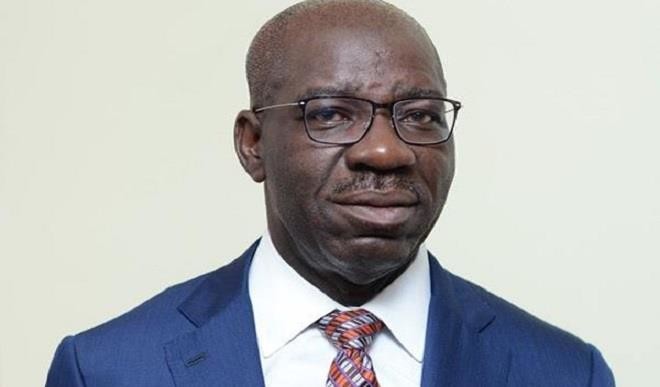Edo uses adult education to fight human trafficking
As part of measures to improve literacy among the citizenry, especially women, the Edo State Government has started resuscitating its adult and non-formal education classes across its 18 local government areas. The essence is to encourage those who did not attend or finish school, as well as the unskilled to further their education and obtain […]

Edo State Governor, Godwin Obaseki
As part of measures to improve literacy among the citizenry, especially women, the Edo State Government has started resuscitating its adult and non-formal education classes across its 18 local government areas. The essence is to encourage those who did not attend or finish school, as well as the unskilled to further their education and obtain certificates free of charge.
The aim of education, among other things, is the “full development of the human personality and the sense of its dignity” and to “enable all persons to participate effectively in a free society.” This cannot be attained by exclusively sending children to school, thus education should be a lifelong process.
It was gathered that the Edo government resolved to revive adult and non-formal education 10 years after it was shut down due to non-payment of stipends to the facilitators.
Apart from improving literacy, the adult education classes is also part of activities aimed at tackling human trafficking, as well as improving female education.
State authorities have said most of the thousands of girls lured abroad by international human trafficking groups were more often than not uneducated and ignorant about the dangers ahead.
Speaking on the issue, the Special Adviser on Gender Issues to Governor Godwin Obaseki, Ms. Efosa Uyigue, said the programme was stopped earlier because local authorities were not interested in supporting it.
Ms. Uyigue said, “But we are reviving it now. We have met with 14 local government chairmen and they have agreed to reactivate the programme in their respective areas. So, out of the 18 LGAs, 14 have signed onto the programme.”
The LGAs that have agreed to revive the programme are Etsako East, Etsako West, Etsako Central, Owan East, Akoko-Edo, Igueben, Esan North East, Esan West, Ovia North East, Ovia South West, Egor, Orhionmwon, Ikpoba-Okha and Oredo,
She said those that were yet to decide were Esan South East, Esan Central, Uhunmwonde and Owan West, adding that she would meet with the authorities there sometime this week to chart a way forward.
Uyigue explained that, “The high rate of human trafficking in the state informed the reviving of adult education by the state government. We have discovered that ignorance fueled the scourge in the state.
“We will look at the Libya returnees, among the over 4,000 of them, less than 10 girls are graduates. So, if they were educated and properly informed they would probably not have embarked on the journey.
“I know that we have many out-of-school girls, some dropped out of school due to pregnancy while others due to economic crunch: their parents could not pay their school fees.
“Others had no opportunity of going to school at all as they were married off early and when they got matured they became vulnerable and were trafficked. So the government has decided to give them the opportunity to go to school through adult education; which is free.
“We have trained facilitators and the facilities are on ground and we are partnering with the Agency for Non-Formal Adult Education. The programme collapsed initially because the facilitators were not paid but now the local government chairmen have agreed to continue the programme and to pay the facilitators.
“People have started enrolling in the programme, and as a government, part of what we are doing is to put modalities in place to ensure continuity and sustainability of the programme.
“Most of enrollees are starting from the primary level, those who were in the programme before it stopped, as well as new enrollees, are enthusiastic about it.”
She, therefore, called on women to take hold of the opportunity and get the best education they could because the programme was free.
“They said they don’t have money before, now that government has said, ‘Come let us train you free’, they should take the advantage and empower themselves as there is no empowerment government can give other than education.
“Although the programme is mostly for women, men can also attend. Our target is our women because we have been given a bad name and we want to change the narrative,” she added.
She commended the local governments for accepting to resuscitate the programme and appealed that they should not fail on their part to pay the facilitators.
One of the enrollees, Mrs. Cordelia Justin, said the programme would make it possible for more women to read and write and that, “We will no longer need anyone to help us fill any form.”
Another enrollee, Mrs. Deborah Ifeanyi, commended the state government for the rare privilege given to women to get educated and called for the sustenance of the scheme which she said would be to the advantage of the people.
